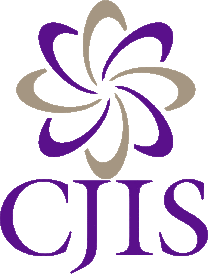2021 Volume 9 Issue 1
2021 - Volume 9 Open Issue: Scholarship Across the University
| A study was conducted to determine the types of soft skills accounting students learn during formal internships. The study was conducted because accounting graduates are not adequately prepared for jobs as suggested by the accounting profession. Employers and accounting graduates are both impacted by this problem because accounting graduates are not contributing immediately as needed by employers. The purpose of this qualitative study was to gather information regarding activities interns perform during internships and how those activities influence the development of soft skills. An interview questionnaire for semi-structured interviews was developed and used by the researcher. From the interview data gathered it was determined hierarchical structure and forced interaction were two key themes that influenced the development of soft skills. Student verbal communication and teamwork development was mostly influenced by the hierarchy and forced interaction. Working on projects and within teams helped students develop problem-solving and critical thinking skills during internships. It was determined corporate culture had a significant effect on the development of soft skills, such as communication and interpersonal skills. A recommendation for future research would be to compare internships at public accounting to those of industry to determine if there are any differences in the findings. | ||
This qualitative study explores college students’ self-perceptions of religiosity and spirituality’s influence in their romantic relationships. A total of 691 students participated in the qualitative survey, which asked respondents to explain how religious or spiritual beliefs affect the initiation, maintenance, and termination of relationships with romantic partners. Thematic analysis results indicate that religiosity and spirituality affect relational communication in significant ways. Fourteen themes emerged, including compatibility assessment, initial boundary setting, religious acti
| ||
| This paper ties together the disciplines of Biblical Theology and Public Health to explors how the Levitical Law of the Ancient Israelites had practical implications on the people’s health and well-being. Discussion of the laws of the God of Israel from the book of Leviticus will be examined in relation food intake and dwelling places. The first section of the paper argues that the prohibition of certain foods according to the Israelite law may have prevented them from certain foodborne illnesses such as Trichinosis. The second section of the paper argues that prohibition of certain dwelling places may have protected them from exposure to risk factors such as algal bloom or demoic acid. The examination of these two facets of Ancient Israelite life in regards to the religious legal parameters impacts physical health and safety if examined through the discipline of Public Health. | ||
This article explores the function of academic peer mentors in first-year composition classes during the COVID-19 pandemic that caused classes to transition mid-semester from in-person experiences to emergency remote teaching. Following a partnership model, the instructor, peer mentors, and a student designed the online platform used for emergency remote teaching, and peer mentors continued their work with students virtually. Although previous studies have described online peer mentoring as impersonal (Vaughan et al., 2016), the present paper indicates that, in addition to providing academic support, academic peer mentoring in a remote environment has the potential to offer students emotional support that positively impacts academic motivation for the students, enhancing the student-mentor connection, and cultivating soft skills for peer mentors. Intentionally incorporating trust-building and community-building activities in remote environments can enrich the peer mentoring experience. Keywords: peer mentors, COVID-19, emergency remote teaching, student engagement, online learning technology | ||
Prerequisite Coursework as a Predictor of Performance in Subsequent Science Courses Mark Wireman, Grand Canyon University Samantha Russell, Grand Canyon University | With the growing focus of colleges on student persistence and retention, early predictors of at- risk students have gained more importance. The authors investigated the relationship of prerequisite science courses as predictors of student success in subsequent science courses by analyzing undergraduate students in a program which includes STEM introductory courses. The results revealed a relationship between the first two prerequisite courses in a three-course sequence and a relationship between the first two prerequisite courses to the third course in the sequence. The results support the first course in the sequence as a predictor of student success in the second and third subsequent courses. This information can be utilized for future implementation of remediation to increase student persistence, student retention, and student outcomes. Keywords: Prerequisite science courses, student performance, predictor, higher education | |
The Relationship Between Burnout and Musculoskeletal Disorders in K-12 Teachers Bryan Oakes, Grand Canyon UniversityJeffrey L. Alexander, A.T. Still University | Over the last few years, the incidence of burnout has increased substantially. Stressful work environments have been linked to various health problems. With high prevalence of musculoskeletal pain in teachers, psychosocial factors have also been associated with the development of musculoskeletal pain. The purpose of this quantitative, correlational study was to investigate if there is a relationship between burnout and musculoskeletal disorders in teachers. Seventy-two participants responded to an email invitation to participate in an electronic survey. Pearson correlation was used to compare the two independent variables. Seventy-two participants completed the survey. The findings of this study confirm a significant, negative correlation between these two variables (r = -.385, p =.002). As teachers reported higher levels of burnout, lower levels of musculoskeletal disorders were reported. One of the benefits of this study was that we were able to identify areas of improvement through the acknowledgement of the identified challenges faced by teachers. |
Page Options

